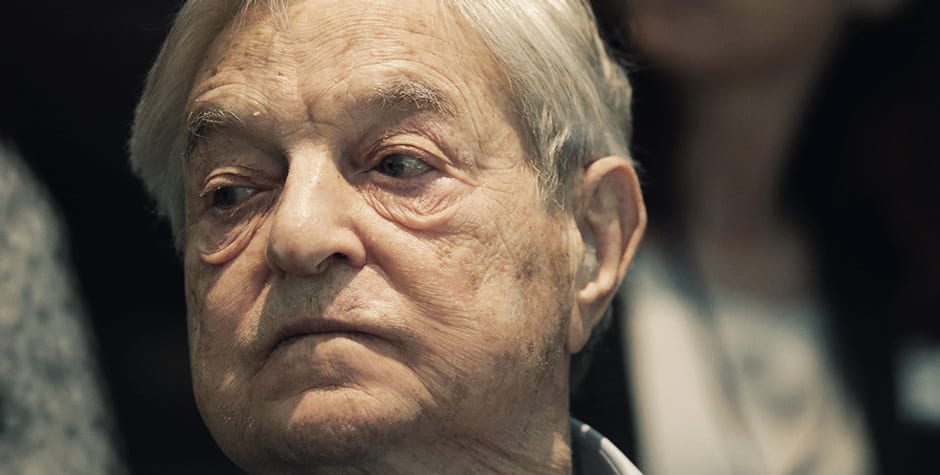Conflicts of Interest Between ECHR Judges and Soros-Funded NGOs Persist Even After Our Bombshell Report
We told you about the conflicts of interest between the radical Left’s George Soros-funded non-governmental organizations (NGOs) and judges on the European Court of Human Rights (ECHR). Radical judges continue to make rulings even when they have personal histories with the NGOs. Such rulings raise questions about the impartiality of the judges as well as other shortcomings.
All this is revealed in the new report published by the European Centre for Law and Justice (ECLJ) – the ACLJ’s European affiliate with consultative status at the U.N.: The Impartiality of the ECHR, Concerns and Recommendations. This new report continues and deepens the analysis undertaken in 2020 on conflicts of interest at the ECHR.
With 46 States under its jurisdiction, the ECHR has gained significant standing over the last several decades. Based in Strasbourg, France, it was established after WWII to make sure the European States would enforce basic and fundamental human rights. But the Court extended its competence far beyond the convention it was meant to protect. Abortion, civil rights, migrants, the rule of law, you name it: The ECHR now rules on practically everything. Tens of thousands of requests arrive at the ECHR each year, and, just like the U.S. Supreme Court, it picks the cases it wants to rule on. The ECHR has become THE top European Court, and all European governments closely follow the case law. Its decisions are most of the time effectively enforced by the European States. The Court often condemns their legislation on a specific topic, and they have to change their laws. Otherwise, the European States have to pay fines and may be convicted again by the ECHR in another case. That is why its impartiality is so important.
At that time, the ECLJ revealed the existence of a structural problem of conflicts of interest within this Court. It showed that, between 2009 and 2019, 18 judges had ruled 88 times on cases introduced or supported by seven NGOs of which they were previously leaders or collaborators. Of these NGOs, George Soros’s Open Society stands out because most of the judges involved are related to it, and it funds the other six NGOs.
In response to this 2020 report, which was recognized as true and well-founded, the ECHR and the Council of Europe undertook to correct certain aspects of the system and suggested measures to improve the selection, independence, and impartiality of the Court’s judges as well as the transparency of the work of NGOs. The ECLJ welcomes these initiatives.
However, our new report finds that cases of conflicts of interest between judges and NGOs have persisted and have even increased. In the last three years alone, from 2020 to 2022, the ECLJ found 54 situations of conflicts of interest, 18 of which concerned Grand Chamber judgments, the most important decisions rendered by the ECHR.
These conflicts concern 12 of the 46 judges of the ECHR. They have sat on 54 occasions in cases brought or supported by the foundation or NGO they founded, directed, or with which they previously collaborated. They are Amnesty International, Human Rights Watch, Open Society Foundation, Interights, a Helsinki Committee or Foundation, A.I.R.E. Centre, and the International Commission of Jurists.
These are clear conflicts of interest that are contrary to the basic rules of judicial ethics and call into question the impartiality of the Court. These judges should have recused themselves. Moreover, the Court has on several occasions refused to grant requests for recusal made by a government concerning applications lodged by the NGO founded by one of the judges.
In addition to these cases of conflicts of interest, this report exposes a series of structural problems affecting the Court’s impartiality and demonstrating that the Court is not up to the standards of other major international and national courts. For example, problems of impartiality are also found in the Court’s registry; the ECHR does not provide for a recusal procedure; judges do not publish declarations of interest; and the handling of cases is opaque, which undermines the right to a fair trial. It also appears that some judges have embellished their curriculum vitae a little too much and do not always have the qualifications expected for the highest court in Europe.
Following these objective findings, based on the Council of Europe’s public data, this report presents a series of specific recommendations to address the problems identified. They have been analyzed and approved by several judges and lawyers of the Court. The ECLJ thanks them for their collaboration and hopes that this new report will contribute to more justice, as the European Court should be exemplary and respect the standards of impartiality it imposes on national courts.
This report shows that this is not the case to date. This is due, among other things, to the fact that the ECHR is not subject to the control of any judicial body that could note its dysfunctions. Governments have not wanted to carry out this control until now, out of respect for the independence of the Court. It is, therefore, up to civil society to assume this work of external control and whistleblowing, and this is what the ECLJ has undertaken.
Read the new ECLJ report: The Impartiality of the ECHR, Concerns and Recommendations.

